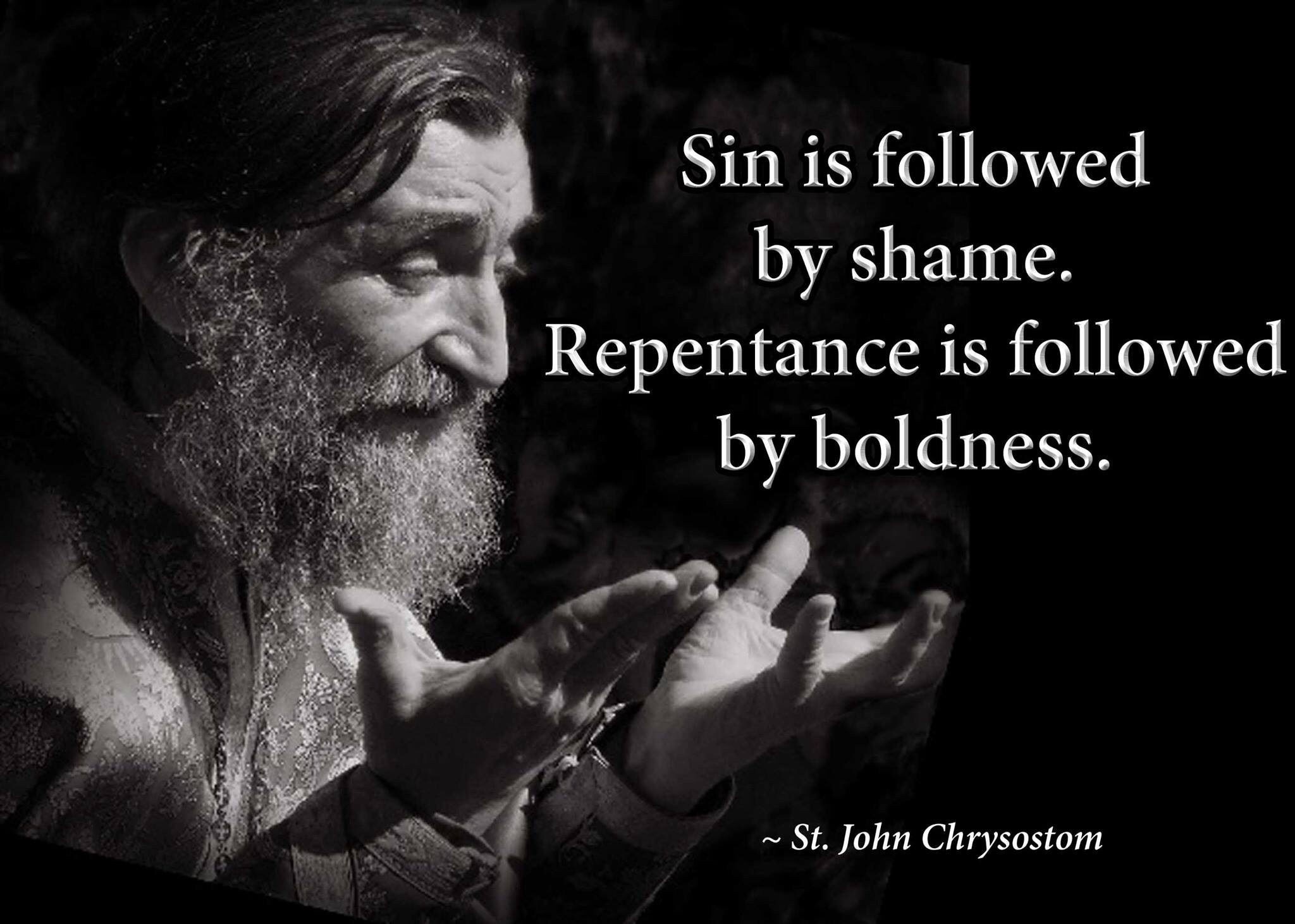|
|
Orthodox Outlet for Dogmatic Enquiries | The Fathers |
|
“On voluntary
and involuntary sins
and what is
the reason they are committed”
Essay No.41
Source: The
Ascetic Words of Abba Isaac of Syria (book) |

|
There is sin, which is committed on account of a
sickness whereby a person is attracted involuntarily, and there is sin which
is committed voluntarily; there is also sin that exists out of one’s
ignorance, which is committed depending on the circumstance. Then again,
sin is committed out of one’s persistence in a sin, because of their
habitual tendency towards evil.
And although all these manners and kinds of sins are blameworthy,
they nevertheless differ amongst themselves comparatively as regards
punishment, given that the one manner is greater than the other, and the
blameworthiness of the one manner is greater (and whose repentance is
welcomed with difficulty), whereas the other’s repentance and
forgiveness is easier.
And just as Adam, Eve and the serpent had sinned - and
all three received the reward for their sin but inherited the curse with
a significant difference - the same occurs with each of their sons and
descendants, according to their predisposition; and whatever desire they
may have for sin, they will savour the appropriate intensity of “hell”.
So, if one does not want to commit sin but on account
of negligence (which he has in virtues), he is attracted violently
towards it - because he is not
engaged in it, even though it displeases him to find himself in sin –
his “hell”
(torment) will be severe. But if it happens that someone who engages in
virtue is touched by a sin, the mercy of God is close by him, in order to
cleanse him.
Different is the sin that is committed when a person is
found to be engaged and persisting in the labours of virtue, being
careful day and night - but because of a certain ignorance or certain
contrary things on the path of virtue, or on account of the waves of the
passions that are always aroused in his limbs, or on account of a change
that may befall him for the testing of his self-government – the
“scales that weigh him” will lean only slightly to the "left", and, drawn by
the weakness of the body, he will fall into a kind of sin - for which
however he will be saddened and will be anxious and groan with a pained
soul for the harassment that was imposed on him by the enemies.
Also different is the sin that is committed when a
person is found lax and negligent in the labour of virtue, so that by
abandoning altogether the path of virtue and hastening like a servant to
the obedience of pleasure towards all sin, he shows zeal in how to
invent arts and machinations for the full enjoyment of sin, and is ready
– like some kind of servant – to diligently execute the will of his
enemy, and to prepare his limbs as weapons of the devil, without in the
least remembering repentance, nor heading towards virtue or desisting
and putting an end to his disastrous path.
Yet another kind is the sin that is committed on
account of a slip-up and falling out, which can occur on the path of
virtue, for – as the Fathers have said – fall-outs and oppositions and
compulsions and their likes are to be found on the path of virtue.
And finally, there is the downfall of the soul and the
complete loss and final abandonment.
From the above therefore, it becomes obvious that when
one falls, one must not altogether forget the love of his own father;
rather, if he happens to fall into various misdemeanors, let him not
show negligence towards the good and pause on the path of virtue;
instead, even when he is defeated and fallen, let him stand up again and
be ever-present in his fight against the enemy, and let him each day
make a new beginning upon the foundations of the ruins of his edifice, while
keeping in his mouth until his departure from this world the prophetic
words: “let not my enemy
rejoice that I have fallen, for I shall rise up again; and if I happen
to
sit in the dark, the Lord will shine upon me”.
Let him not abandon and cease the
battle until the hour of death, and let him not betray himself upon the
defeat of his soul, while he still has breath.
But, even if one day the vessel of his soul is shattered, and the
merchandises of his virtues drowned, let him not cease to look after it
and take care of it; instead, with borrowing and transitioning to other
ships let him travel with hope until the Lord sees his struggles and on
pitying his shattered state sends him His mercy and gives him strength
to sustain the burning arrows of the enemy.
And when he thus receives wisdom from God, he will then be a
wise, sick person who had not excised his hope.
It is far better to be vilified for a few things, rather than for
the abandonment of all things; it is for this, that Abba Martinianos
encourages and admonishes us to not become lax and cower in the face of
the multitude of struggles and in the various ways of battle, but rather
to persevere on the path of virtue and not turn back and deliver our
victory to the enemy on account of one ugly work, for this blessed Elder
– as a caring father – had with orderliness said these things.
Children, if you are true fighters preoccupied with
virtue and caring for the salvation of your soul, you must desire and
present your Nous clean to Christ, and work for that activity which is
favourable to Him, because you must by all means undertake for the love
of Christ every battle that is roused by natural passions, and for the
resistance to this world, as well as the malice of the demons and their
machinations. Do not fear
the unflagging and persistent and violent nature of battle, nor hesitate
about the duration of the struggle.
Do not tire when frightened by the armies of the enemy, nor fall
into the pit of despair. If
you should happen to temporarily trip and sin, and suffer something in
this major battle, and if you are beaten and wounded face-on, let this
not in the least hinder your good intention, but instead, persist in
that good labour which you had preferred, and thus achieve this desired
and praiseworthy labour: that is, to appear steadfast and immoveable in
that battle and painted with the blood of your wounds, never ceasing
the fight with your opponent demons.
What is even more terrible is that by separating
himself from his virtuous brethren, Christ will likewise separate him
from them on that day, when the luminous cloud will be carrying their
brightened bodies on it, and introducing them to the heavenly gates.
This is why the irreverent will not be resurrected on
the day of judgment, given that their actions have been condemned from
here; nor will the sinners find themselves before the will of the
righteous on the day of the resurrection of the dead.
Translation: A.N. |


